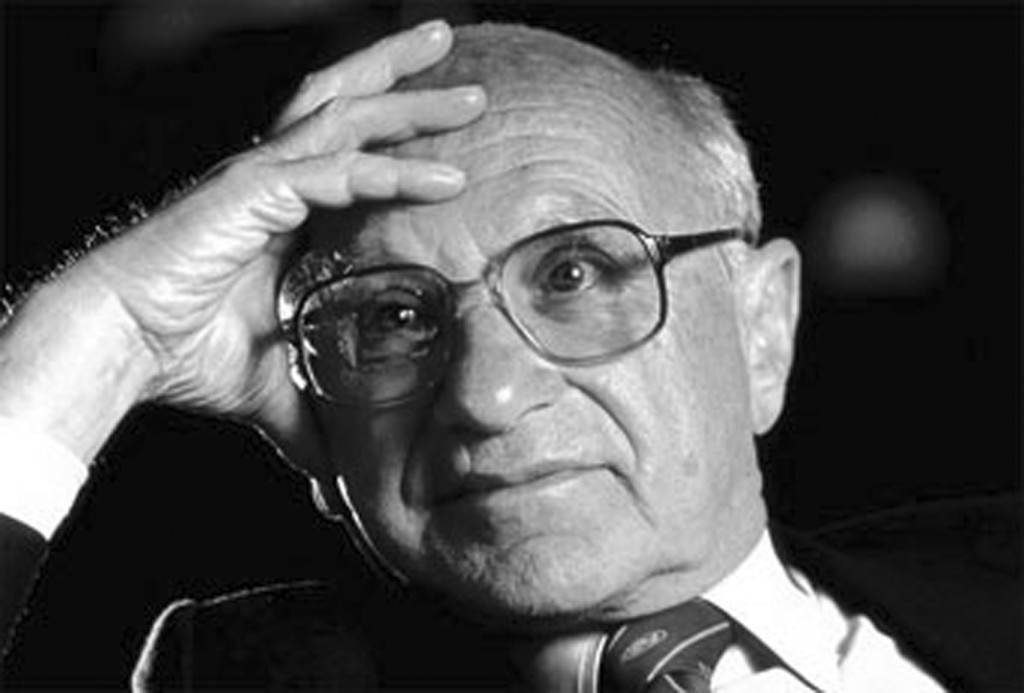
In the 1960s, Milton Friedman was my repeated guest on “Problems of the City” on Chicago radio KQED-KFMF, and later, I was a guest on his TV show to debate United Federation of Teachers president Albert Shanker. We – Friedman and I, not Shanker – shared the hope for a free market in schooling but differed regarding both its justification and appropriate design.
He favored a subsidy of equal value for the child of every parent, then would let the market rip! It was to him an economic sin to favor lower-income families in either the amount of the subsidy or the design of regulation for participating schools. The focus for him was not on the role of the parent, but rather the achievement of simplicity and laisse-faire in the economy.
Friedman was never to change his mind; in fact, he took the opportunity along the way to promote just such an unregulated voucher as a popular initiative in California in 1978, designed so as to compete with a prior and more lower-income-oriented initiative written and promoted by Steve Sugarman and myself. So divided, neither proposal made it to the ballot.
He did, however, succeed at inspiring a covey of monied and dedicated marketeers who have to this day remained willing to support a let-her-rip approach to choice. Their generous enthusiasm has given birth to a covey of pure-market non-profit organizations, today’s most plangent cheerleaders for choice – that is, for equal subsidy for both the poor and for the already comfortable family, and with nearly zero regulation of the chosen providers. These well-intending market folk have succeeded largely in giving subsidized parental choice the image of Friedman himself.
This picture may have held very little glamour for voters, but paradoxically has been much appreciated by the captains of the public school unions; it allows them to picture subsidized choice as another deceit of the rich and powerful (other than themselves).
When Sugarman and I began designing model choice statutes in the ’60s, our first invention was a complicated device intended to arm the lower-income parent with an array of choices, including the level of the subsidy in both public and private sectors. Over time, our published inventions have become more simplified but ever with the central aim of empowering the lower-income parent to act as responsibly as does the comfortable suburbanite.
After this half-century of division between Miltonites and “voucher left” (their pet name for people like us), could it be that the time has come to consider what sort of compromise might give political life to our shared democratic hope? Could we learn a bit from Ohio, Florida and Washington, D.C.? Could it be both “fair and free market” for us lefties to concede at least a trophy amount to the well-off in recognition of their civic role as parent, while awarding the poor the full economic reality of that same parental responsibility and authority?
The success of any choice system in empowering the poor would, of course, require some commitments from the (freely) participating school – private or (at last) “public.” For example, the participating school could retain complete liberty to select two-thirds of its admissions, but then to select the rest at random from among its unchosen applicants.
In designing such statutory proposals, a half-dozen other forms of commitment by the participating schools would be considered to ensure fairness. Each of these compromises in design could be bargained by the “voucher left” and the Miltonites. These variations were examined in some detail and modeled in our 1978 book, “Education by Choice: The Case for Family Control” – and in our later published models.
It will not necessarily be politically hurtful to the cause of choice that Betsy DeVos will be gone, and that the president-elect appear as mendicant of the union elites. The individual state will still decide whether and in what precise form those who need choice should receive it. And, at some point, in another paradox, SCOTUS may well take occasion to lend its voice to the rescue of the penniless under the Constitution. This could well be the time for voucher folk, “left” and right, and in every state, to become happy co-conspirators.



Jack-
I think happy co-conspirators is entirely possible! If there are still people anxious to die on a hill regarding giving all students an equal amount of aid in a private choice program, I am unaware of them. Many programs use the state’s weighted funding formula as a baseline for funding, but it wouldn’t be terribly hard to do better on the equity front.